At 19, on a fine spring day after a long midwestern winter, I wondered why I was in such a hurry to finish my undergraduate degree, which I was taking at breakneck speed. And now I was hurdling toward an accident of thinking too much about everything. I left university with only a semester to go, but I stopped smoking pot indefinitely.
I pored over every trajectory, the options made available to persons my age in our culture. The usual things. For example, I could marry my boyfriend. When I stretched this prospect out over ten years, the marriage looked so uninteresting that I saw myself traveling alone, on a plane headed for Paris, never to return. That relationship, as I wended through the nuances, would not bear up under ordinary, daily wear. Except for midterms and finals, campus life was carefree and love, untested.
The idea of marriage turned everything sepia, tinged with the tired sunlight of mid-afternoon. It would mean the suburbs. I imagined trying to live with the heft and burden of a china hutch, which one fills slowly over time; and an undistinguishable, largely unused, for-display-only front yard; and a generally mind-numbing conformity. I would need a place to scream.
Or, I could go to work. I had little experience with anything other than housework or homework. I had no idea what it was like to have a job, and I was not keen on finding out. I was already leaning left in my socio-political views, and I knew that business people were usually conservative. I was puzzled by work being a primary tenet of the women's movement, at the same time these ladies were throwing off their bras. It doesn't take long to figure out that the lack of foundation garments will get you sent to Human Resources, the work-world equivalent to the principal's office. These days, with no HR departments, one is simply fired.
Of course, if I was not in school, I would have to work; and work is where I learned that democracy ends at the office door. I could not eat when I was hungry; I had to wait my turn in a lunch rotation. Personal phone calls had to come out of my lunch time, and I could never look too comfortable at my desk. The office manager would take that opportunity to fill my inbox with paperwork she didn't want to do. Life at the office (and an eight-hour day is a lot of one's life) was trivial, at best, and barefaced fascism most of the time. I could not understand how democratic principles did not apply, though the reason was absurdly simply: I didn't own the place.
I returned to university several times just to get a break from the workplace, but I finally completed my undergraduate degree, though it did not help one jot in determining a future course of action. Not even a master's degree was able to put me in a solid career direction. After wandering for years in a kind of private diaspora, my true homeland unknown, I decided what I would always need were regular breaks from the world.
I have taken several such breaks, some radical.
Not long after leaving university for the first time, I became enamored of a spiritual community I visited in Berkeley that also had a farm up north in Mendocino County. I spent one entire summer hoeing and picking vegetables, meditating, walking the hills, and playing volleyball. Some things we did as a group were hokey, but so in earnest, I was deeply impressed. By the time I learned I had joined the Moonies, I didn't care. I had made good friends.
That relationship lasted several years through all the weird newspaper reports about kidnappings and brainwashing, which I read with disappointment because it was patently untrue. I knew this because I was thrown out of the Moonies twice; and when I decided to leave because I was ready to move on, I simply called a cab.
Not to sound nonchalant, I agonized over that decision as the difference between what I wanted for my life and what that organization offered began to widen. The Moonies were good, decent people, to the one, and theirs has been a worthy experiment. What I always found enjoyable was the communality. It was not just a value, but the reality, what impressed me about the group in the first place. Sadly, we have to go far afield of our current society to find that kind of peace and security.
What the American Dream does not offer.
It is my personal belief that people need sanctuary, not necessarily more money or a better job. We need to stop the world once in a while and get off, that is, drop out. What I imagine is a campus/facility that costs nothing at all, where there is complete rest and a reality free of the usual pressures and competitiveness, a place where it is possible to meet people whom we might never meet from another culture, race, or occupation and where it is possible to learn a new skill or art form. Then, satisfied, refreshed, and renewed, we would return to the world we inherited, perhaps, to make a real difference.
Money, despite so much cultural importance attached to it, despite its centrality to the American Dream, does not seem to make anyone happy for very long. Add that fact to all the stress of earning it or finding ways to steal it and hide it from the government. Happiness of the permanent sort, not the temporary ersatz, is far more of a shared endeavor than an individual pursuit.
If happiness and money were compatible, both would be shared; and there are very few people who have the capacity to share money, even within one's own family --- perhaps the reason why Marxist revolutions are the bloodiest and why, if anyone escapes, they empty the national treasury on their way out.
Even education has come to reflect the pursuit of money: universities are geared as much toward financial careers as they are toward providing a fine education. Not that they are necessarily mutually exclusive, but MBA programs have been touted for decades as the prerequisite for workplace mobility and a decent income and have trumped the pursuit of educations in other fields.
And the discourse of political campaigns has a tendency to devolve narrowly around jobs. Few people have bothered to ask why we cannot talk about satisfying occupations, right livelihood, and modifying the American Dream to include the quality of life, all life, including the environment and other species. Fortunately, the way we have been doing business has come sharply into focus recently, which may give us a chance to see how our obsession with money-making is destroying our world and creating an indifference to the very things that could make us well and happy.
Breaking free of our attachment to the narrow world we have created will not be easy, but it is certain to involve doing business in new ways. It will certainly -- and it must for our survival --include new modes of living, with less dominant, xenophobic, disjointed views toward each other and nature.
How to Remove Pen Ink from Clothes: Home Remedies
-
That sinking feeling when pen ink bleeds across your favorite shirt is
universal. Whether it’s a ballpoint explosion in your […]





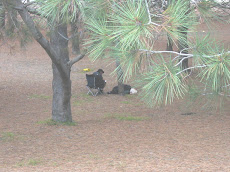



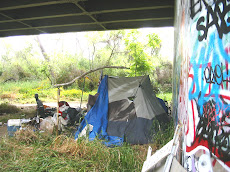







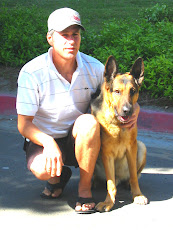
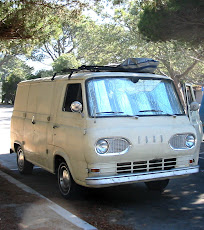
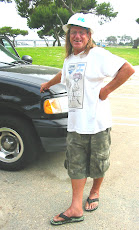









No comments:
Post a Comment